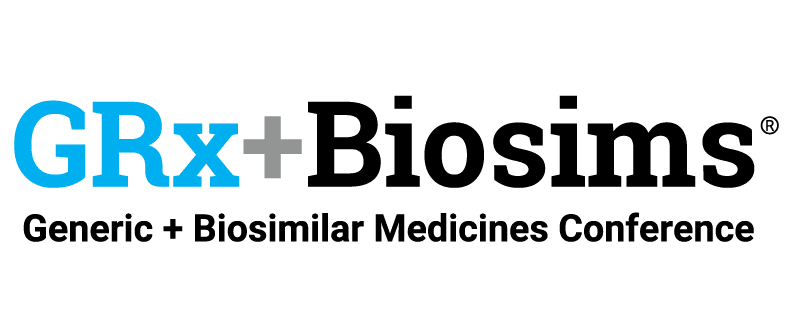Science, Data and FDA Support the Safety and Efficacy of Biosimilars for Patients
As the biosimilars market begins to expand patient access to critical but costly biological medicines in the United States, misinformation campaigns threaten to slow biosimilar uptake and undermine confidence in these U.S. Food and Drug Administration (FDA)-approved products. These campaigns, often driven or silently funded by brand manufacturers, are intended to sow doubt among patients and prescribers regarding biosimilars’ safety and efficacy, and to construct regulatory, policy and legal roadblocks to competition.
Such misinformation threatens the health of the very patients who stand to benefit most from greater access to these treatments. It is important to focus on the facts about biosimilar medicines, including safely switching from brand reference products to FDA-approved biosimilars.
Biosimilars: Safe and Effective Alternatives
According to the FDA, a biosimilar is a biological product that is highly similar to, and has no clinically meaningful differences from, an existing FDA-approved reference product (brand) in terms of safety, purity and potency (safety and effectiveness).[1] Moreover, “Patients and their physicians can expect that there will be no clinically meaningful differences between taking a reference product and a biosimilar…Once a biosimilar has been approved by FDA, patients and health care providers can be assured of the safety and effectiveness of the biosimilar, just as they would for the reference product.”[2]
To date, FDA has approved nine biosimilar medications, treating a range of conditions. Six approved biosimilars are for treatment of inflammatory diseases, which include Crohn’s disease, rheumatoid arthritis and psoriasis. Patients who suffer from these diseases in the United States now have the opportunity for greater access to treatments at a lower cost through biosimilar competition. In fact, a recent study done by Avalere Health on behalf of The Biosimilars Council found that an additional 1.2 million U.S. patients could gain access to biologics by 2025 as the result of biosimilar availability.
But patients and their medical providers are increasingly a target of misinformation campaigns around these medicines.
To address such false and damaging information and educate health care professionals, the FDA recently launched a biosimilars education campaign aimed at familiarizing health care professionals with biosimilars and, in turn, making them comfortable in prescribing these therapies to patients. According to the Agency, “once a biosimilar has been approved by FDA, patients and health care providers can be assured of the safety and effectiveness of these products, just as they would for the reference product.”
In addition, the European Union (EU) has more than a decade of patient experience with biosimilars that has shown no difference in health outcomes between patients who use a biosimilar and those who take the reference biologic medicine. In fact, there has been an estimated combined 700 million patient days of clinical experience with marketed biosimilars in Europe that has confirmed that they have the same safety and effectiveness as their brand reference products.
Switching to Biosimilar Medicines
One of the most frequent unsubstantiated claims made by those seeking to discredit biosimilar safety and create fear is that switching from a reference product to a biosimilar could be dangerous for patients who are stable on their reference medication.
A growing body of scientific data suggests otherwise. A recent systematic literature review found that switching to a biosimilar carried a low risk of safety issues or loss of efficacy and was not dangerous to patients. The review was comprised of 90 biosimilar switching studies conducted on more than 14,000 individuals and involving seven molecular entities used to treat 17 disease indications.[3] The review concludes, “Overall, the results suggest a low risk of either a safety concern or a loss of efficacy after switching to a biosimilar.”
One of the study’s co-authors, Gillian Woollett, M.A., DPhil, senior vice president of the independent health consulting company Avalere and leader of the company’s FDA practice, stated in a recent interview that the study is aimed at reassuring all biosimilar stakeholders that, “even though no clinical differences are expected when patients are switched from a reference product to a biosimilar, indeed none are found. Hence, we confirm the expectation already established through the application of sound regulatory science.” That confirmation can help all stakeholders feel comfortable with biosimilars, even for patients who are established in their treatment with a reference biologic.
Conclusion
As patients across the country finally begin to reap the benefits of available, lower-cost biosimilars, education around the safety and efficacy of these FDA-approved medicines remains paramount. The Biosimilars Council will continue to promote the facts and dispel the myths to ensure that patients, prescribers, policymakers and all health care stakeholders understand the critical role of biosimilars in delivering access and savings.
[1/2] U.S. Food and Drug Administration (FDA) “Biosimilar and Interchangeable Products” Link: http://bit.ly/2G1NbiB . Accessed: March 21, 2018
[3] Cohen, H.P., Blauvelt, A., Rifkin, R.M. et al. Drugs (2018) 78: 463. https://doi.org/10.1007/s40265-018-0881-y
